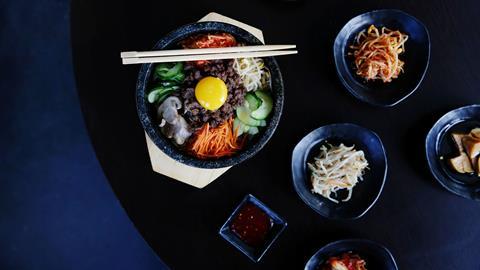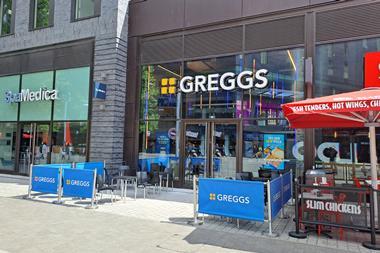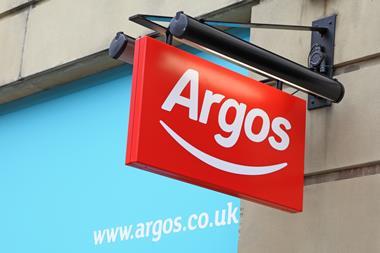Korean cuisine is making waves in UK grocery.
First, Ocado bolstered its Korean range with 50 new products. Then Korean food brand Sun Hee unveiled 20 new SKUs, set to roll into Tesco.
But the sudden rise of Korean cuisine in UK grocery isn’t that surprising, especially if the influence of Korean pop culture over recent years is considered.
K-pop (short for Korean popular music) has become a global phenomenon. Leading the charge for the genre’s success in the UK was the release of Psy’s 2012 track Gangnam Style – the first single performed by a South Korean act to top the official UK charts. In more recent years, K-pop bands like BTS and Blackpink have sold out headline arena shows at the O2 and Wembley, respectively.
Korean cinema has also found a worldwide audience. After Parasite (2019) made history by scooping the Oscar for ‘Best Picture’ at the 92nd Academy Awards, Korean-American films Minari (2020) and Past Lives (2023) have also been nominated for the prestigious accolade.
Korean home cooking boomed
Even the streamers have embraced Korean pop culture: Squid Game (2021) is Netflix’s most-popular non-English language TV show, racking up a whopping 2.2 billion hours viewed to date.
Notably, some of these landmark achievements for Korean cultural output occurred in tandem with the UK Covid-19 lockdown periods – when home cooking boomed as bored shoppers tried making dishes from various cuisines.
World foods manufacturer Surya Foods jumped at the opportunity to cash in on Brits’ interest in Korean cuisine, launching a range of store cupboard ingredients into Tesco under a new brand, Sun Hee, in 2021.
The range – which included the likes of gochujang (sun-dried red chilli paste), doenjang (soybean paste) and kimchi – was targeted at “discerning shoppers who are passionate about enjoying genuine flavours,” said Surya Foods MD Harry Dulai.
Since then, shoppers’ appetite for Korean ingredients has only continued to grow. Online cooking outfit Mob Kitchen’s most popular recipe in 2022 was sausage gochujang rigatoni; and Ocado listed 50 new Korean products in October 2023 after noticing searches for ‘kimchi’ on its site had increased by over 40% in two years.
Supermarkets selling Korean food
Ocado’s bolstered range includes two variants of Jinro Soju (the leading spirits brand in Korea) – Green Grape and Peach. The Jinro drinks also rolled into the world food aisles of 91 Sainsbury’s stores in December 2023. In the same month, Wagamama unveiled a new Korean-inspired menu and Mintel predicted tteokbokki (simmered Korean rice cakes) would become one of our favourite snacks in 2024.
This flurry of activity from retailers and foodservice indicates industry insiders are confident Korean cuisine is here to stay. But to drive mainstream sales, Korean food brands will need to dial up the convenience factor to keep shoppers coming back.
That’s something Surya Foods understands. The new Sun Hee meal kits have been developed to offer “quick, easy and satisfying Korean meals”, while its on-the-go udon noodle bowls are packaged “for ease of transport”.
Plus, the brand plans to share recipe ideas on its social media platforms “to show UK home cooks just how easy it is to cook Korean”, says Dulai. If other suppliers can replicate its canny approach, Korean food and drink products are sure to steal further shelf space in 2024.

























No comments yet